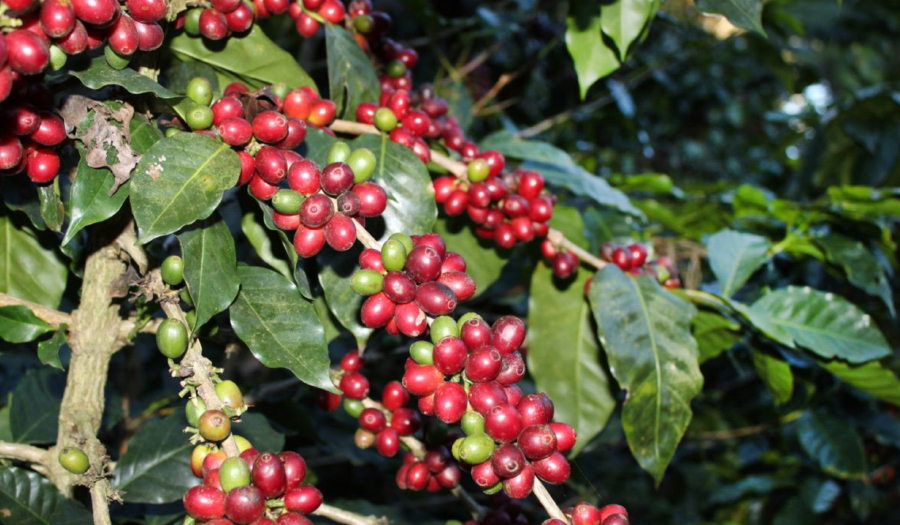By Jessica Damiano
(AP) – About 20 years ago, while on vacation in Nashville, Tennessee, I saw my first coffee plant growing inside a greenhouse. I was fascinated to learn that its red “cherries” grew in bunches and that each cherry contained two seeds, which are what we call coffee beans.
I was also surprised to learn that coffee can be grown indoors and, with proper care and some patience, will even produce beans that can be roasted (or toasted) for brewing, although likely just enough for a cup or two. Still, with its beautiful glossy green leaves, fragrant white flowers and shrubby habit, Coffea arabica makes a handsome and fun houseplant.
You should have no trouble finding it at larger nurseries, and houseplant catalogs and websites.
Coffea trees grow to roughly 25 feet tall in the wild on their home turf near the equator. As potted houseplants, they top out at about 6 feet, but are often trimmed to a more manageable size without ill effects.
GROWING CONDITIONS
To grow one yourself, plant it in a well-draining potting mix with a pH range between 6.0 and 6.5, such as one amended with peat moss. Keep plants slightly moist (but never soggy or completely dry) by watering thoroughly once every week or two, then not again until the soil is half dry.
Place the pot in a warm (70- to 80-degree) room, away from drafts, in a spot that receives bright, indirect light, such as off to the side of a sunny window.
Provide ample humidity by misting the plant daily, running a humidifier nearby or placing the pot on a shallow pebble-filled tray to which you’ve added water. As the water evaporates, it will produce a humid microclimate around the container.
Feed your plant four times a year with a balanced fertilizer, following package directions. If you’d like to prune it, do so during spring.
THE PAYOFF
Your coffee plant should start blooming when it’s 3 to 5 years old. To get beans, you’ll have to hand-pollinate the flowers using a cotton swab or a small artist’s paintbrush to transfer pollen from one blossom to the next. If done correctly, the flowers will give way to cherries.
Harvest ripe cherries when they’ve turned entirely red. Set them out to dry in a single layer, tossing them daily to prevent their bottoms from rotting. After a week or two, slough off their dried, leathery skin and pulp to reveal the beans within.
Dry-roast the beans in a hot wok or frying pan, stirring constantly until browned. Allow to cool, then grind and brew yourself a cup of homegrown Joe.










